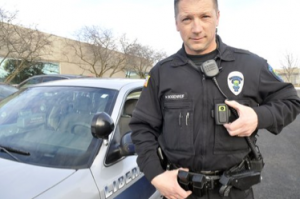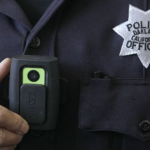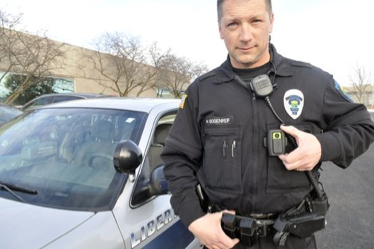Advocates for body cameras on police officers say they reduce citizen complaints and use of force incidents. They say that it’s natural for police officers to be on their best behavior if big brother is watching.
and use of force incidents. They say that it’s natural for police officers to be on their best behavior if big brother is watching.
But who is really watching? Not me and not you.
The Florida Senate is considering a bill that would create broad exemptions from the public record laws for the footage from the body cams. Senate Bill 248 — sponsored by who — will basically guarantee that most of the video is never seen outside the police department if it is determined that the recording is:
- Taken within the interior of a private residence
 Taken on the property of a facility that offers health care, mental health care or social services
Taken on the property of a facility that offers health care, mental health care or social services- Taken at the scene of a medical emergency
- Taken at a place where a person recorded or depicted in the recording has a reasonable expectation of privacy
- Shows a child younger than 18 years of age inside a school or on school property
- Shows a child younger than 14 years of age at any location
Well, that could be almost anywhere and every video? I bet that a reasonable expectation of privacy varies from person to person. And if someone is hurt in a scuffle with the cops, does that constitute a medical emergency?
Read related story: Body cameras are swell; but put one on the mayor, too
Public records exemptions already exist if the video is going to disclose intelligence information on an active investigation, or it reveals the identity of undercover officers, confidential informants or victims of a sexual crime, or if it contains information related to the someone’s confession, or information about a minor’s home or school.
So when are we going to get to see a police body cam video? Probably never.
The bill, of course, will allow police agencies to film whatever they want whenever they want and release the footage whenever it’s convenient for them — like whenever another police agency asks for it. But members of the public, including the media, will not have the ri ght to request videos — even though the cameras and the system to maintain them are paid for with public dollars.
ght to request videos — even though the cameras and the system to maintain them are paid for with public dollars.
And even when there are serious allegation of abuse of power or police misconduct.
Wait, what? This is sold to us as a way of keeping cops honest. And, basically, the only ones who can get copies of the video without a court order are going to be the cops themselves? Is that so they can straighten out their story?
Ladra is not sure that the body cameras are even all that. I am concerned that the cost associated with the maintenance of the records will grow and it will become another bureaucratic favor fund to yet another vendor who will then have to contribute every campaign season to whoever pulls the strings. In fact, the only plus for me is that the public has an avenue to check out a particular police officer’s version of events. If you take that away, what have you got? A business deal?
There are there mixed feelings even among those who advocate for the use of body cameras. The Florida ACLU, which had supported them, is against this bill. “It’s original objective to be an oversight mechanism no longer exists,” wrote Michelle Richardson, director of public police for ACLU Florida, regarding body cams.
In other words, it sort of goes against the whole “public eye” argument, doesn’t it?
But when Miami-Dade Mayor Carlos “Cry Wolf” Gimenez — the local champion for the technological babysitting program — spoke at the Miami-Dade Legislative Delegation meeting at FIU in January, he asked them to support a state law that would limit public access to footage recorded by the body cams.
Gimenez — who has already set aside $1 million in this year’s  budget for 500 cameras and the storage and maintenance of their video — was in Tallahassee last week supporting the bill.
budget for 500 cameras and the storage and maintenance of their video — was in Tallahassee last week supporting the bill.
Why does he want to block you and me from seeing what he would be able to see? How is that transparent?
The bill is introduced by Sen. Christopher Smith, a Fort Lauderdale Democrat and co-sponsored by Sen. Geraldine Thomson, a Dem from Orlando. The 305’s own South Dade Democrat Sen. Dwight Bullard withdrew his co-sponsorship after realizing what it was really trying to do, he told Ladra.
The bill has passed through committee and is headed toward its third reading in the Senate.
While I think the red legislators are friendlier toward this bill than the Dems, Ladra urges you to call your senator and urge him or her to vote no on this bill.
Because it’s a slippery slope. Who knows what’s going to be exempt from public records next?
And this undermines the very rationale for police body cameras in the first place.
- Oscar Braynon, III — 850-487-5036
- Dwight Bullard — 850-487-5039
- Miguel Diaz de la Portilla — 850-487-5040
- Anitere Flores — 850-487-5037
- Rene Garcia — 850-487-5038
- Gwen Margolis — 850-487-5035

